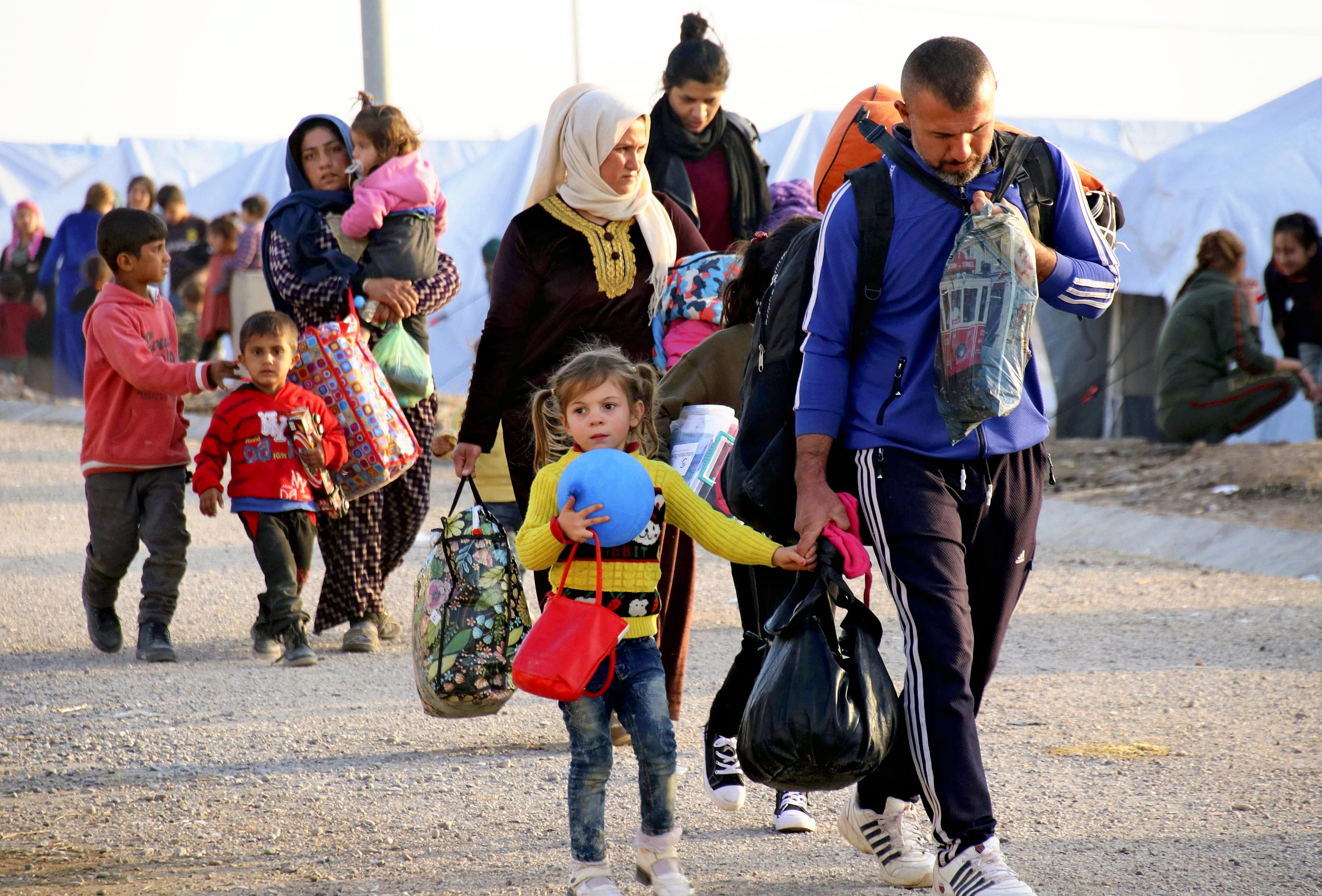December 06, 2019
It's been two months since President Trump abruptly ordered the withdrawal of US troops from northern Syria, paving the way for a bloody Turkish offensive in that region. (See our earlier coverage here.) What's happened since? A guide for the puzzled:
No "end date" for US troops in Syria – US Secretary of Defense Mark Esper said this week that the United States has completed its military pullback in northeastern Syria. Back in October, President Trump pledged to withdraw the roughly 1,000 American troops deployed there. Since then, some American troops have left Syria altogether, while others were redeployed to defend nearby oil fields from ISIS, as well as from Syrian government troops and Russia. Now, there are roughly 600 American troops dispersed around Syria, and the remainder have been deployed in Iraq to stave off a potential ISIS resurgence. It's not clear if any troops have returned to the US. When asked about the chaotic comings and goings of US troops in Syria in recent months, the commander of US Central Command said frankly: there's no "end date" for American troops stationed there.
Calamity for Syria's Kurds – President Trump's decision to give Ankara a green light to launch a military offensive against Syria's Kurds gave renewed resonance to the old adage "Kurds have no friends but the mountains." Both Russia and Turkey rushed to fill the vacuum left by the US withdrawal, with Turkey launching a sustained shelling campaign of Kurdish villages. A recent Turkish strike on a marketplace killed at least 10 civilians, mostly children. Around 160,000 Kurdish civilians have fled the area, with many escaping to other parts of Syria or making their way to refugee camps in Iraq.
But at the same time…The US has actually resumed some joint anti-ISIS missions with the Kurds, capturing and killing dozens of ISIS fighters in recent weeks. And that's a good thing: the US Defense Intelligence Agency recently warned that ISIS would exploit the collapse of the weakened US-Kurdish alliance to regroup in Syria.
What's Russia's role? Back in October, Russia agreed to help Turkey drive out Kurdish fighters from a "safe zone" along the Turkey-Syria border. The deal was a boon to Moscow, which quickly took over local US bases and expanded its influence. For now, Russia is using its warplanes to help the Assad regime reclaim territory in Idlib province – some of the last pockets of anti-Assad opposition. Writing in the Daily Beast, Middle-East based reporter Seth Frantzman aptly summed up Moscow's strategy: "Russia's real goal is not to end the war in Syria, but to sustain low-level confrontations where all sides become dependent on Moscow."
From Your Site Articles
- Can Syria rebuild to welcome returning refugees? - GZERO Media ›
- How Syrian rebels toppled Assad's regime - GZERO Media ›
- What's next for Syria after Assad, with Beirut-based journalist Kim Ghattas - GZERO Media ›
- Trump can't "stay out" of Syria entirely, says Kim Ghattas - GZERO Media ›
- Northwest Syria's aid dilemma: the aftermath of devastating earthquakes - GZERO Media ›
More For You
Tune in on Saturday, February 14th at 12pm ET/6pm CET for the live premiere of our Global Stage from the 2026 Munich Security Conference, where our panel of experts takes aim at the latest global security challenges.
Most Popular
- YouTube
In this Quick Take, Ian Bremmer weighs in on the politicization of the Olympics after comments by Team USA freestyle skier Hunter Hess sparked backlash about patriotism and national representation.
British Prime Minister Keir Starmer delivers a speech at Horntye Park Sports Complex in St Leonards, Britain, February 05, 2026.
Peter Nicholls/Pool via REUTERS
In July 2024, Keir Starmer won the United Kingdom’s election in a landslide. It has been downhill ever since, with Starmer’s premiership sullied by economic stagnation, intraparty fighting, and a lack of vision for the country.
© 2025 GZERO Media. All Rights Reserved | A Eurasia Group media company.
